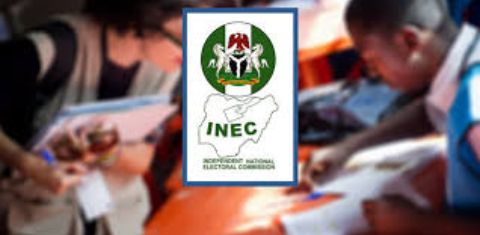After allegations of vote-selling, violence, and voter intimidation, the Centre for Democracy and Development questioned the legitimacy of the state House of Assembly and governorship elections held on Saturday, Entrepreneurng report.
While the group applauded improvements in the way the elections were conducted, particularly in the area of logistical deployment that led to INEC official arriving more quickly, the group also pointed out that there were still sporadic problems with the Bi-modal Voter Accreditation System machines’ non-functionality.
In its initial statement about the gubernatorial and state Houses of Assembly elections held in Abuja on Saturday, the CDD made the following.
In a press conference, the group’s Executive Director, Idayat Hassan, said data from its 1,500 observers stationed all over the nation showed there were more instances of vote-buying during the February 25 governorship race than during the presidential election throughout the six geopolitical zones.
“Observers in all seven states in the North-West reported an upsurge in reports of vote-trading, mostly by political party agents. Votes were purchased using money in addition to other materials like food, wrappers, and a “credit voucher,” which had to be redeemed when the results were announced.”
In Taraba State, political party agents were seen to have entered the lines, purported to be voters, and taken advantage of the opportunity to offer money in exchange for votes. There have been claims of APGA and LP party agents in the South-East luring voters in Anambra State with materials, phones, and other trinkets.
Party agents reportedly compiled a list of their voters in Esan Central LGA, Edo State, and other states in the South-South reportedly wanted people to provide proof of their ballot before getting paid.
In addition, Ms. Hassan raised alarm about instances of insecurity and a smaller number of security personnel than before the February 25 Presidential and National Assembly elections.
The diminished visibility of security personnel has been a problem in some zones. Particularly as compared to the presidential election, observers across the states in the South-South, South-West, and North-West reported a substantially smaller security presence.
As a result, there have been several altercations and clashes involving voters, party members, and officials. For instance, observers in Jigawa drew attention to conflicts amongst self-declared party members while others in Enugu observed skirmishes between party representatives.
According to reports, thugs invaded a voting location in Akwa Ibom’s Ukanafun LGA and scared away voters. At Rivers State’s Emelia LGA and Obio Akpor LGA, thugs also stole election materials and interfered with the voting process.
The Chairperson of the CDD’s Election Analytical Centre, Prof. Adele Jinadu, also spoke, noting that based on anecdotal data, the voting participation varied from state to state.
He added that there was a comparatively larger voting participation in states where the incumbent was seriously challenged by his opponent.
According to Jinadu, the CDD observation data showed that in the South-South, the widespread dejection brought on by the unfavorable outcome of the presidential election had an impact on turnout, with voters saying “there is no point” in going to the polls.
He added that the data from the observers showed that over 80% of the observed polling units in the South-West zone had INEC officials arrive on time and start the process as soon as they arrived.
According to him, the trend was widespread among the six geopolitical zone. With voting starting on average at 8:41am in Anambra State, 75% of polling units had INEC officials who arrived on time.
In conclusion, reports surfaced that INEC employees in Benue State spent the night at the voting place to prevent being late.
Source: Punch


